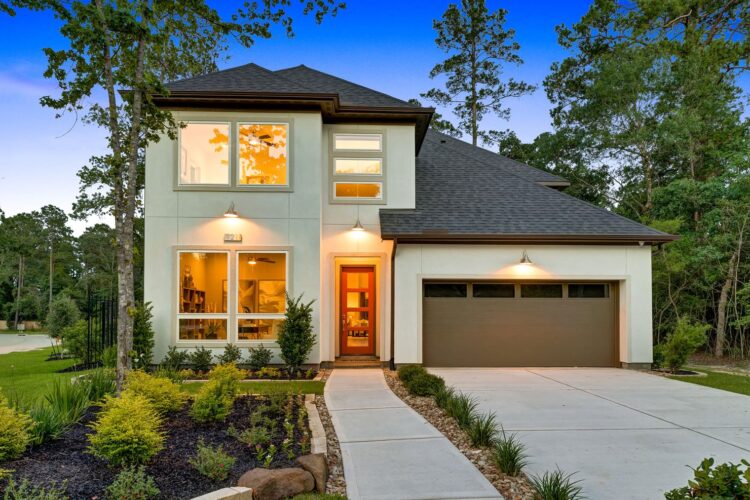Just like any other part of a house, garage doors can be affected by changing weather conditions. Extreme temperatures, moisture, and other weather elements can damage your door’s parts and materials and cause it to malfunction. Let’s explore the impact of weather on garage door parts and accessories and what can be done to address these weather-related issues promptly.
The Impact of Heat and Sunlight
One factor that can impact the longevity of garage door materials is excessive heat and sunlight. Long-term exposure to these weather elements can cause the expansion of metallic materials, fading and discoloration, damage to electronic components, and strain on garage door springs.
Over time, garage doors may age or become dull due to heat-related problems. Moreover, they may weaken the materials, affecting the garage door’s structural integrity and smooth operation. The electronic components of garage doors can also be affected and may malfunction.
As proactive measures, consider applying protective coatings or finishes, installing weather stripping, and providing shade or awnings to minimize direct sunlight exposure. Alternatively, you can choose an insulated garage door, which offers better protection from external weather conditions.
The Effects of Cold and Freezing Temperatures
Freezing temperatures cause metal contraction, frozen lubricants and weather seals, and broken springs in garage doors, resulting in misalignment or malfunctions. Additionally, extreme cold can make parts and accessories more brittle, increasing the risk of damage.
To mitigate these issues, it is recommended to apply a silicone-based lubricant to the metal components of your garage door. It is also crucial to occasionally check and realign the tracks to keep the garage door in good condition. Lastly, keeping the seal clean and free from ice or debris helps maintain its effectiveness.
The Threat of Rain, Humidity, and Moisture
Rain, humidity, and moisture create various garage door parts and accessories issues. Moisture builds up on your door’s hinges and tracks, leading to rust and corrosion and affecting its functionality. Furthermore, moisture can cause the springs to lose tension, making the garage door difficult to open or close. Lastly, circuits and sensors may malfunction if there’s excessive moisture.
Keeping the garage well-ventilated can prevent the accumulation of moisture. Aside from this, it is also best to use a plastic cover to shield the opener from humidity. Regular garage door inspections can also help detect and mitigate rust promptly.
The Challenges of Extreme Weather Conditions
Severe weather phenomena like storms, hurricanes, and strong winds can significantly impact garage doors and their components. They are particularly susceptible to powerful rain and winds, causing them to buckle or detach from their tracks. Water damage and rust can also develop from heavy rainfall.
To reduce the risks of damage to your garage doors, homeowners must reinforce their door tracks and hinges by tightening loose screws and lubricating rollers. It also helps to strengthen the garage door panels with impact-resistant glass or metal panels. Alternatively, homeowners can install storm-rated garage doors or additional locking mechanisms.
That said, it is better to identify and fix issues before they worsen than deal with the aftermath. By weatherizing their garage doors before the seasons change, homeowners can protect their homes against harsher conditions.
The Consequences of Ignoring Weather-Related Issues
Putting off maintenance and repairs for weather-related issues on garage doors can have costly and dangerous consequences. Damaged doors may require extensive repairs or replacement, adding unnecessary financial burdens to homeowners.
Ignoring such issues can also compromise personal safety and security. A buckling garage door has the potential to fall off its track and cause injuries to the homeowners. Additionally, weakened garage doors can become targets for break-ins, putting the home’s and its occupants’ security at risk. Prioritizing scheduled maintenance and promptly addressing weather-related problems can avoid such consequences.
Protect Your Garage Doors From the Elements
Harsh weather can cause wear and tear, damage, and malfunction to your garage door parts and accessories. By prioritizing routine inspections and maintenance, homeowners can keep their garage doors functional and safe for a long time. Don’t wait until it’s too late—take care of your garage doors and protect your property from the unpredictable forces of nature.


